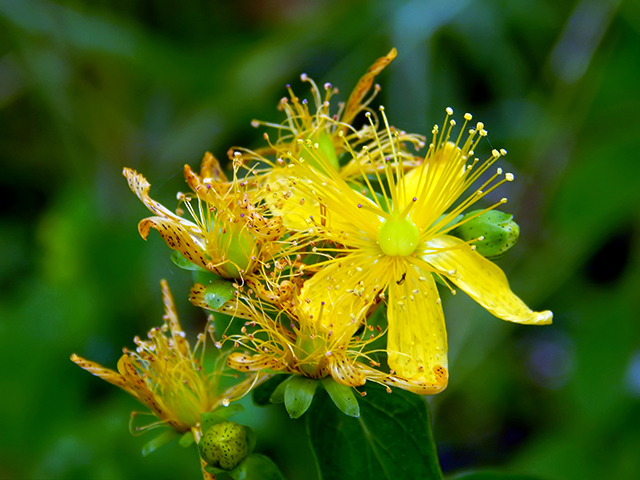 Parler
Parler Gab
Gab
Glucosamine for cancer
Glucosamine is found naturally in the body's cartilage. It is a tough tissue that helps cushion your joints. Other natural sources of glucosamine include the ends of chicken bones and crustacean shells. Since the food sources of glucosamine are limited, the shells of shellfish like crabs, lobster and shrimp are often used to make glucosamine supplements. Glucosamine supplements can also be synthesized in a laboratory. Over the years, studies have failed to show definitively if glucosamine tablets can treat pain on a wide scale. But they are considered generally safe and many people with osteoarthritis report feeling some pain relief after taking glucosamine supplements. In the U.K., National Health Service (NHS) GPs no longer prescribe it to arthritis patients due to a lack of concrete research. However, new research published in March 2022 suggests that the pills can help lower the risk of cancer. The study was published in the European Respiratory Journal. For the study, researchers worked with nearly 440,000 middle-aged adult participants. Results showed that the pills had "anti-cancer benefits." The research team discovered that the 82,600 participants who said they took the pills "regularly" had a 16 percent lower risk of developing lung cancer over the 11-year study period. These volunteers were also 12 percent less likely to die from lung cancer. The scientists added that their research did not go as far as to prove the pills were causing the lower risk and that other factors may be at play. Other studies have also linked the use of glucosamine with a lower risk of heart disease. Experts believe that glucosamine may have anti-inflammatory properties, which could help reduce the risk of cancer and arteries becoming clogged up. This then allows the immune system to function at full capacity. (Related: Woman who battled blood cancer for 5 years RECOVERS with the help of turmeric.)St. John's wort for depression
According to data, natural remedies like St. John's wort may also offer benefits for those with depression. Around 4.5 percent of Britons are thought to be clinically depressed. Estimates suggest that the figure may have gone up by one-fifth since the turn of the century. NHS doctors currently prescribe cognitive behavioral therapy or antidepressants for people with depression. However, antidepressants are linked to many negative side effects such as:- Anxiety
- Diarrhea
- Dizziness
- Dry mouth
- Fatigue and weakness
- Headaches
- Nausea
- Sexual problems like ejaculation problems, erectile dysfunction, or low sex drive
- Stomach upset
- Trouble sleeping
TENS for pain
Ernst said that endometriosis flare-ups, knee pain and period cramps can be relieved with a special treatment called transcutaneous electrical nerve stimulation (TENS) that zaps the body with electricity. TENS soothes body pain by blocking nerve signals with a mild electrical current. Ernst explained that TENS uses a little generator powered by a battery. The device produces a low voltage electrical current that connects to electrodes which a patient attaches over the area of pain. Experts believe that the electric current stimulates nerve cells that block the transmission of pain signals, modifying the patient's perception of pain. The NHS recommends people considering TENS to consult with their GP, who could refer them to a physiotherapist or pain clinic for the treatment. Ernst referenced a review published in February 2022 that analyzed data from 381 trials with a total of over 24,500 participants. The review showed that there was "moderate-certainty evidence that pain intensity is lower during or immediately after TENS compared with placebo and without serious adverse events."Melatonin for sleep
The hormone melatonin is produced during the night and it is believed to help control sleep patterns. Melatonin naturally occurs in the pineal gland in the brain, but a synthetic version can also be taken in pills. Ernst said that while melatonin is often recommended for sleep problems, many health experts doubt its effectiveness. According to a systematic review published in the Journal of Neurology in January, melatonin is a promising treatment for sleep issues. The paper, which was written by researchers from the Tehran University of Medical Sciences in Iran, reviewed 23 studies with participants taking melatonin for sleep. Data showed that melatonin had a "significant effect on sleep quality" of the volunteers. Ernst added that there is also some encouraging evidence that suggests melatonin might have "a range of positive effects in cancer palliation." However, another study revealed that sustained use of melatonin may cause an unknown array of serious health issues like "grave cognitive decline and psychiatric problems in the long-term." Long-term use was also associated with more serious health consequences, especially if melatonin was taken with other drugs.Meditation for lower back pain
Chronic lower back pain is an increasingly common problem, with many people suffering from sitting at work all day. Ernst suggested that the solution could be found in an ancient practice like meditation. Meditation was first recorded in Hinduism's earliest scripts written in around 1,500 BC. The scripts can be traced as far back as 5,000 BC. Meditation involves focusing the mind on a particular object, thought or activity to increase attention and achieve a calm and clear mental state. The practice has then been adopted in the West as part of mindfulness. Studies show that meditation may offer benefits for people with different mental and medical disorders, like high blood pressure. In a study published in the journal Pain Medicine, researchers reported that meditation could help people with lower back pain. For the study, scientists from Taipei Medical University in Taiwan reviewed 12 trials involving more than 1,150 patients. The results showed that the patients who meditated had significantly reduced back pain after starting the practice compared to those who did not meditate. "Meditation-based therapies constitute a safe and effective alternative approach for CLBP management," wrote the researchers. Experts think that meditation can help ease pain by altering the structure of the brain, making the feeling less intense. Ernst explained that the review suggested meditation could be beneficial for people experiencing pain. Unlike chiropractic treatments, meditation isn't linked to severe negative side effects, noted Ernst. In another study published on July, 30 healthy Americans were put through an eight-week mindfulness course. The 30 volunteers were then compared to a control group. The volunteers were given a brain scan before and after the course while their limbs were exposed to heat to establish a pain response. Results showed that those in the group that practiced mindfulness showed less activity in regions of the brain responsible for soreness compared to the control group. A separate experiment on long-term mindfulness followers showed that they had physical changes to their brains that influenced their perception of pain. Visit AlternativeMedicine.news to learn more about other natural treatments for different health issues. Watch the video below to know more about the health benefits of melatonin. This video is from the Holistic Herbalist channel on Brighteon.com.More related stories:
Study: Consuming apples, oranges and strawberries can help people with Parkinson’s disease live longer. 10 Ways to use comfrey, a powerful healing herb. Nature therapy: Time in nature can now be prescribed as a healthcare treatment in Canada. Sources include: DailyMail.co.uk Livestrong.com PubMed.ncbi.nlm.nih.gov 1 Healthline.com Pubmed.ncbi.nlm.nih.gov 2 Brighteon.comStudy: Glyphosate is present in both organic and genetically modified foods
By Belle Carter // Share
Walking after a meal can help prevent diabetes, experts say
By Zoey Sky // Share
10 Medicinal uses of black cumin seed essential oil
By Olivia Cook // Share
Protein, water and more: 9 Ways to boost your metabolism and promote weight loss
By Zoey Sky // Share
Vitamin D could have easily stopped covid from spreading, reveals medical doctor
By Ethan Huff // Share
Craving a snack late at night? Try these 6 sleep-promoting desserts
By Zoey Sky // Share
Governments continue to obscure COVID-19 vaccine data amid rising concerns over excess deaths
By patricklewis // Share
Tech giant Microsoft backs EXTINCTION with its support of carbon capture programs
By ramontomeydw // Share
Germany to resume arms exports to Israel despite repeated ceasefire violations
By isabelle // Share










